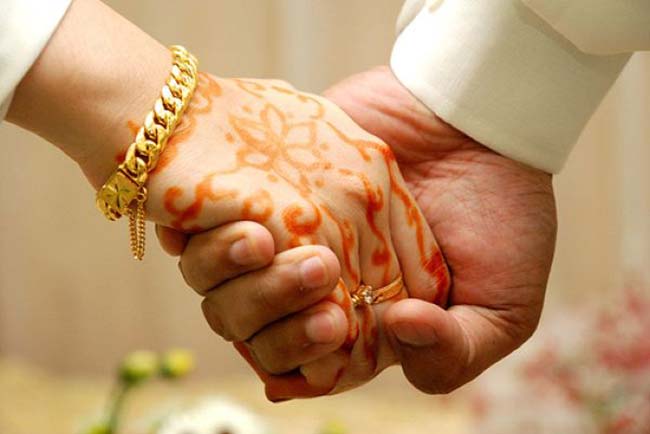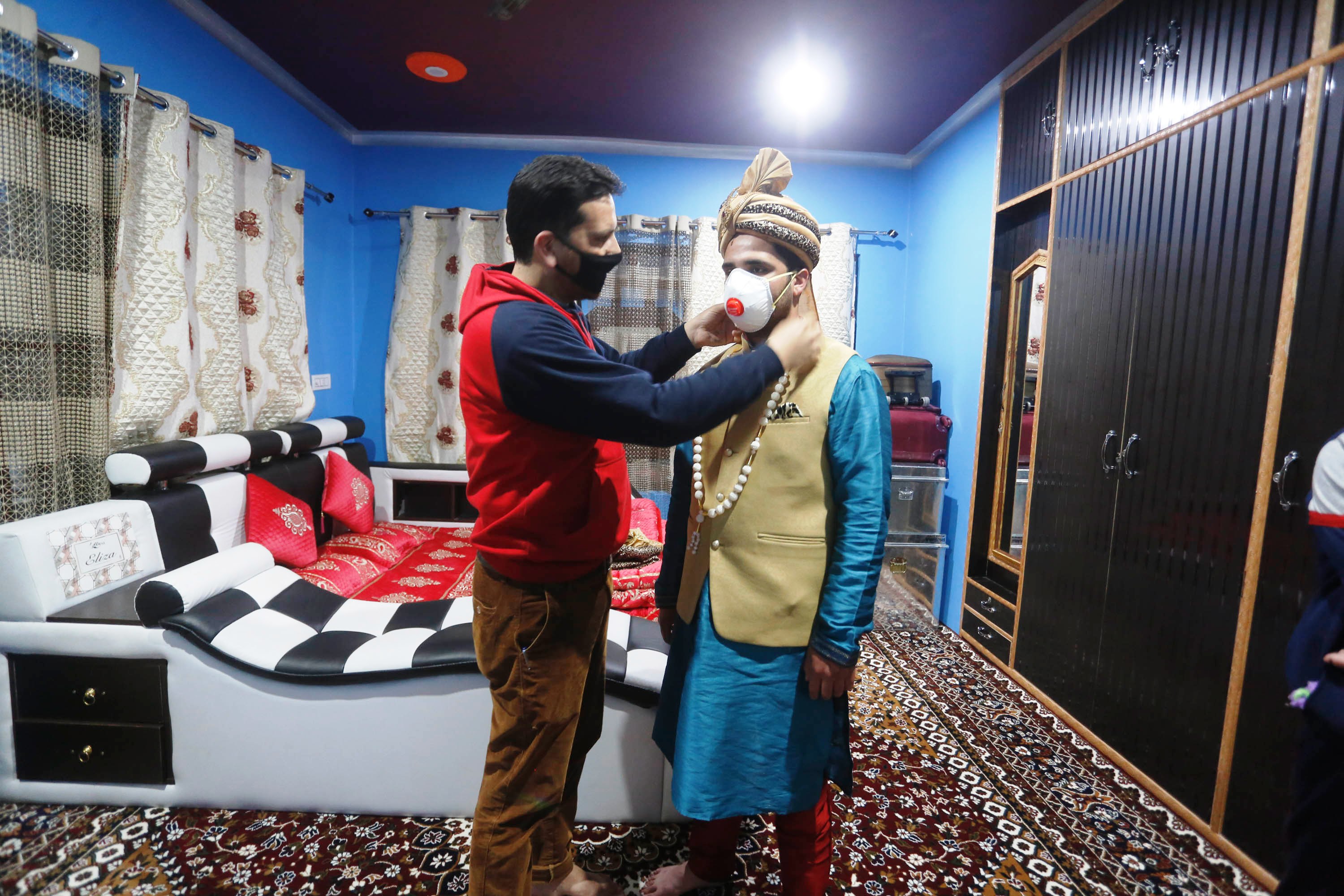The Covid-19 outbreak has destroyed the spring marriage season in Kashmir as families were forced to defer the ceremonies. A few, however, managed taking vows amid pandemic and austere ceremonies, reports Tasavur Mushtaq

In courtship for many years, Abid and Amina got engaged in June 2019. Both residents of Srinagar, they had a ring ceremony at a high-end Srinagar hotel.
The couple planned a grand wedding. When their families met in late December at the Nikah ceremony, they decided to hold the ceremony in the first week of April. so that all the functions are concluded before the onset of Ramzan, the holy month of fasting.
With a few months left, the couple chooses Delhi as their shopping destination. They selected brands in sync with each other’s choice. They decided to buy thematic designer wear for every single occasion. A professional team of photographers was hired to record the festivities.
As March rolled around, preparations were almost done. The list of guests, marriage hall, choice of dishes and lately a post-marriage trip to Singapore – everything was in place. Both worked as professionals and earned handsomely, the money was no constraint.
By the time they flew home from Delhi, the times had changed. As the Coronavirus spread, it dashed their hopes of a grand ceremony. The families got in touch again, this time to postpone the wedding for the next few months.
However, the couple disagreed. They decided to keep their date. “Who knows how long it will stretch,” said Abid.“We are living in times of extreme uncertainty. You never know what will happen tomorrow. The virus is spreading fast.”
The Mehandi planned with DJ at both places turned out to be a family affair. Amina’s youngest sister applied henna on her hands and feet from the cone, that too after washing hands many times with soap, as suggested by the World Health Organisation (WHO). For Abid it was a routine affair.
The following day, as Abid left his home to get his bride, only two persons accompanied him, his uncle Manzoor Ahmad and cousin Farhan. Wearing normal trousers with a button-down shirt, it took Abid less than 15 minutes to reach his destination. There was no wanwun and no long wait for the baraatis.
As masked Abid entered in-laws house, the welcome was not routine. Without shaking hands and accepting hugs, he moved quickly to the drawing-room. Only smiles were exchanged.
“This has happened the first time that we were restrained to hug the groom and it was painful too,” said Rukhsana, Amina’s mother.

The scene at Amina’s place was unusual for a wedding setting. Only four of the family members were present including Amina. All had put on masks and maintained the distance.
In the drawing-room, the pillows were placed far away from one other, in line with the protocol of social distancing. The three men sat and were offered Kehwa, without bakery and other delicacies. A homemade roti was served to the guests.
An hour later, Manzoor requested the family to get Amina ready. With no make-up ritual and heavy wedding lehenga, the pink dress she wore was routine stuff. The bride had worn gold ornaments and an N95 mask.
Back home Abid had quiet entry and his bride too. Nobody touched the bride. She was asked to help herself.
Amid the absence of traditional Kashmiri songs and slaughter of a goat, Amina walked alone to the designated drawing-room. Welcomed from a distance, tears rolled down the cheeks of Atiqa, Abid’s mother. She could not do the traditional veil lifting ceremony, as well. No relatives were around, no welcome songs were sung.
In between the wedding, the matchmaker hired to tie the relationship came to know about the function several days later, only to feel disappointed.
This was not an isolated case. At many places, the mutating virus forced families to solemnise the marriages similarly.
Postponed in August last year, Shazia and Afaq were scheduled to get married this year in April. As per the girl’s family, they cancelled the marriage to have it properly done. Being the only child of her parents, the list of guests was long. But post-pandemic first, the feast was cancelled and later it was decided to defer the wedding again. But Afaq’s family did not agree to a further postponement.
“The process of deferring the ceremony time and again was taking its toll on our mind,” said Afaq’s father, Muhammad Amin. He said over the last two years the family was in marriage mode and wanted to put an end to this.
As Shazia’s uncle came to know about the decision taken by the groom’s family, he tried to persuade them to delay it further. It didn’t work. The marriage took place on April 12, in the presence of the immediate family. The uncle who tried to persuade the groom’s family too missed the function, courtesy the kidney ailment and possible infection.
Afaq’s cousin drove him alone to the bride’s place. At both the places, nobody outside the family was present, except the driver cousin. Before and after April 12, no function took place.
For Wamiq, it was like a lottery. Caught in the arguments with his family to tie his nuptial knots in a simple manner, he had a tough time since he got engaged to Irtiza in December 2018. The scheduled marriage for 2019 was delayed because of the troubled situation. But this year, it was scheduled for April. Though his family again tried to postpone again, he put his foot down.
“My intention was to have a simple marriage and I feel Allah helped me.”
With three persons accompanying the Nikah and reception took place at the same time. He had a cup of tea and left with his bride in his own car.
The fading away of the fat weddings is giving sleepless nights to the business because it was a major push during times of uncertainty. With the virus still out of control and the global economies getting their own records compromised, nobody knows what will happen to the businesses linked to the institution of marriage in the post-Covid-19 era.















